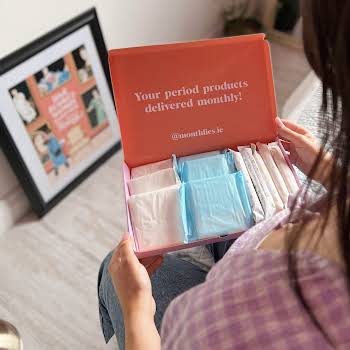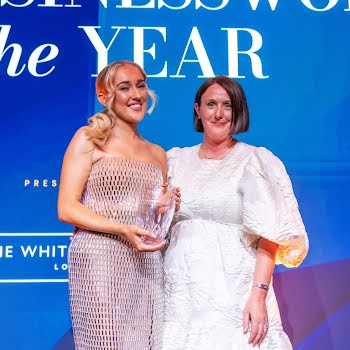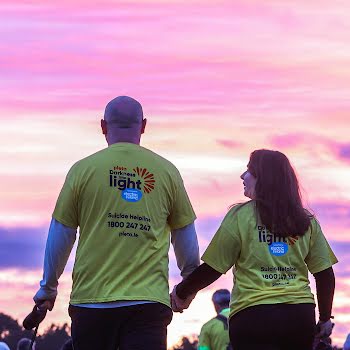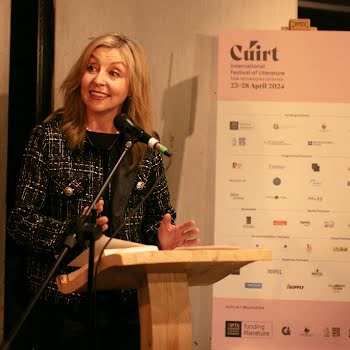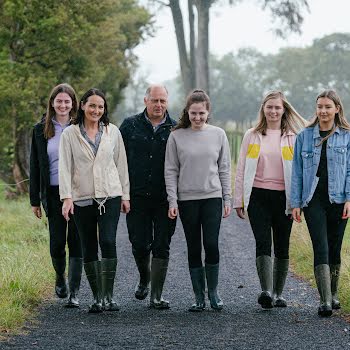Bloody disgrace: Thinx period underwear found to have harmful ‘forever chemicals’
By Sarah Finnan
28th Jan 2023
28th Jan 2023
It’s 2023; having a period should not be so difficult.
As conversations around climate change intensify, people all around the globe have been making small changes in an effort to live more sustainably – for those who get a period, that often involves switching from pads/tampons to more eco-friendly hygiene products.
But what happens when the companies we trusted to help us through our monthly cycle, are outed as having lied to us? About some pretty serious things, I might add.
This week news broke that New York-based brand Thinx has settled a $4million class-action lawsuit regarding the presence of short chain per- and polyfluoroalkyl substances (PFAS) – also known as “forever chemicals” – in their products. The company previously claimed that their underwear was “organic, sustainable and non-toxic”.
According to the EPA (United States Environmental Protection Agency) website, PFAS are widely used, long-lasting chemicals – components of which break down very slowly over time. Because of their widespread use and their persistence in the environment, many PFAS are found in the blood of people and animals all over the world and are present at low levels in a variety of food products and in the environment. However, scientific studies have shown that exposure to some PFAS in the environment may be linked to harmful health effects in humans and animals.
Branding itself as “reusable period products for all”, Thinx denies “improper or unlawful” behaviour, maintaining that PFAS “have never been a part of” product design. However, the lawsuit alleges that the company does include PFAS in their products, without properly disclosing this to consumers.
“We’ve been breaking taboos since 2013, and we’re just getting started,” a short blurb on Thinx’ website reads. “ Our Thinx underwear was the first period innovation in *literally* 76 years, and we completely reimagined the bladder leak experience with our absorbent Speax underwear. From the NYC subway to the pages of Vogue, we’re one of the most well-known, awarded, and recognisable period and incontinence underwear brands out there, providing a more sustainable solution to 1.3 million people worldwide.”
Reading this while in my thinx underwear. pic.twitter.com/xke6yWlQh9
— half serious (@half_seriousss) January 17, 2023
The Thinx lawsuit/settlement is really wild. I've spent hundreds over the last several years on the period underwear, and they've been lying this whole time about them being toxic free.
— Black Midwife (@SassyE) January 16, 2023
Turns out they weren’t exactly telling the truth. Worse still? That many users only found out about the whole thing through social media… many while wearing Thinx underwear at the time.
As per an article in Teen Vogue, Thinx period underwear “has been the subject of similar complaints in numerous lawsuits in the last few years” – all stemming from allegations made by writer Jessian Choy, who penned an article for Sierra magazine in 2020. In the article, Choy claimed that an independent lab test found high levels of PFAS in Thinx underwear, “especially on the inside layers of the crotch”. “Exposure to PFAS at even the lowest concentrations has been shown to harm human health,” Choy wrote, before noting that the crotch in her underwear had “3,264 parts per million (ppm)” while the teen underwear equivalent had 2,053 ppm. “That’s high enough to suggest they were intentionally manufactured with PFAS,” she concluded.
Thinx denied the claims at the time, telling Teen Vogue that based on third-party expert testing, “PFAS chemicals were not detected in Thinx products”. Fast-forward three years and the company is in hot water over the exact same claims.
Why, I ask, is it so hard to find safe, affordable, quality period products?
Chris Bobel, a professor of gender and sexuality studies at the University of Massachusetts Boston, tells The Guardian that it’s because menstruation is still a taboo – products are designed to obscure periods, hide the fact that women are openly bleeding… as long as they do so, women are encouraged to feel grateful for the coverage, not sceptical or curious of how a product works.
“Our socialised priority is to conceal our menstruating bodies, and not to question the types of products that we use,” Bobel explains. “It really is a perfect set-up for the industry to take advantage of us and exploit our desperation to pass as non-menstruating.”
The impending threat of toxic shock syndrome echoes in my mind anytime I use a tampon and it’s that same fear of period products that allows companies to monetise our vulnerability.
Aside from the obvious financial burden of being a woman (we’ve all heard of the Pink Tax), there are also sustainability concerns to contend with. The imbalance in conversations regarding the environment is shocking and more often than not, the onus is placed entirely on women’s shoulders – be that regarding waste, fashion or yes, even periods.
Excluding the billionaire tech leaders funding climate action programmes (more in an effort to win public favour than real concern for the environment), women appear to be doing the majority of the heavy lifting when it comes to the ways in which we can be more eco-conscious.
“Oh, you don’t have a menstrual cup? You could end up using anywhere from 5,000 to 15,000 pads and tampons in your lifetime, which take centuries to decompose. Shame on you!,” advertisements shout at us, shaming us for bleeding and daring to be a woman. If you feel stressed about being perfectly ethical and sustainable, you’re not alone… but it’s clearly a double-edged sword. Try to be more sustainable and companies like Thinx inject your underwear with harmful forever chemicals (without telling you!). Seems like we can do no right.
Not forgetting period poverty and the fact that for many, access to hygiene products is simply not a reality. Period poverty (lack of access to sanitary products, hygiene facilities and menstrual education) and hygiene poverty (not being able to afford everyday hygiene and personal grooming products), are growing issues in Ireland – ones that have only been exacerbated by the pandemic. One in six people live on an income below the poverty line and despite tampons not being a luxury item, many still can’t afford them.
A study from Plan International Ireland found that almost 50% of girls aged between 12 and 19 in Ireland, found it difficult to pay for sanitary products. Of the young women surveyed, one in 10 said they were forced to use a “less suitable sanitary product” because of the cost.
A Period Poverty in Ireland report, released in February 2021, stated that national data on poverty rates suggests as many as 85,000 individuals around the country may be at risk of period poverty. The report also highlighted that period poverty significantly affects those in minor and ethnic communities, abusive relationships and those experiencing addiction, homelessness and in refugees. When The Homeless Period Ireland surveyed 51 women from Direct Provision centres, 27 reported that they are still charged for period products despite the Minister for Children and Equality’s confirmation that they are free in every centre.
“Most women and girls will have 12-13 periods per year with some using up to 22 tampons and/or towels per cycle,” the report noted. “Overall annual costs of period products for individual women, including pain relief, can be estimated at a minimum of €121.”
Tampons and sanitary towels are not subject to VAT in Ireland but newer period products introduced after 1991, that might better suit some users and the environment – like menstrual cups and period underwear – are still taxed at the highest rate of 23%.
No woman, girl or trans person should struggle to access safe sanitary products or hygiene facilities and while much has been done to combat this, Thinx’ lawsuit proves that there’s still a very long way to go.
Anyone who bought Thinx period underwear between November 12, 2016 and November 28, 2022 could be entitled to part of the settlement money. You can find mor information on the settlement and how to submit a claim form here.















